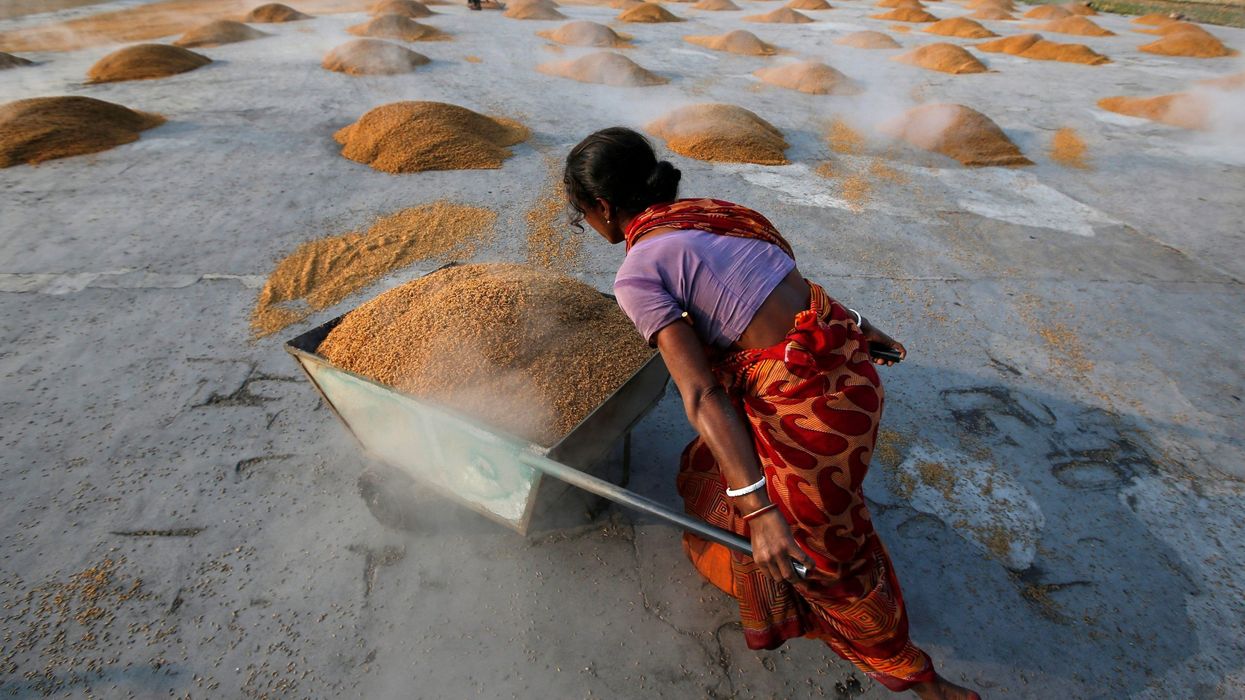INDIA has prohibited the export of non-basmati white rice with immediate effect, according to a government notice on July 20, after a late start to seasonal monsoon rains hurt the crop and raised fears of a production shortfall.
Here are some facts explaining why India is crucial to the global rice trade:
- India accounts for more than 40 per cent of world rice exports, which amounted to 55.4 million metric tons in 2022. India's rice shipments reached a record 22.2 million tons in 2022, more than the combined shipments of the world's next four biggest exporters of the grain - Thailand, Vietnam, Pakistan and the US.
- India exports rice to more than 140 countries. Key buyers of Indian non-basmati rice include: Benin, Bangladesh, Angola, Cameroon, Djibouti, Guinea, Ivory Coast, Kenya and Nepal. Iran, Iraq and Saudi Arabia mainly buy premium basmati rice from India.
- India exported 17.86 million tons of non-basmati rice in 2022, including 10.3 million tons of non-basmati white rice. In September 2022, India banned exports of broken rice and imposed a 20 per cent duty on exports of various grades of rice.
- New Delhi has not put any restrictions on the export of basmati rice and parboiled rice, which stood at 4.4 million tons and 7.4 million tons, respectively, in 2022.
- Indian farmers plant paddy rice twice in a year. Summer-sown crop planting starting in June accounts for more than 80 per cent of the total output, which was 135.5 million tons in the 2022/23 crop year. In winter months, paddy rice is mainly cultivated in central and southern states.
- West Bengal, Uttar Pradesh, Andhra Pradesh, Punjab, Odisha and Chattisgarh are key rice producing states in the country.
- To boost the area of rice cultivation, India raised the price at which it would buy new-season common rice paddy from farmers by 7 per cent to Rs 2,183 ($26.63) per 100 kg. But industry officials fear the area under paddy could drop marginally in 2023 because of erratic monsoon rainfall distribution.
- The late arrival of the monsoon led to a large rain deficit up to mid-June. And while heavy rains since the last week of June have erased the shortfall, they have caused significant damage to crops.
(Reuters)





